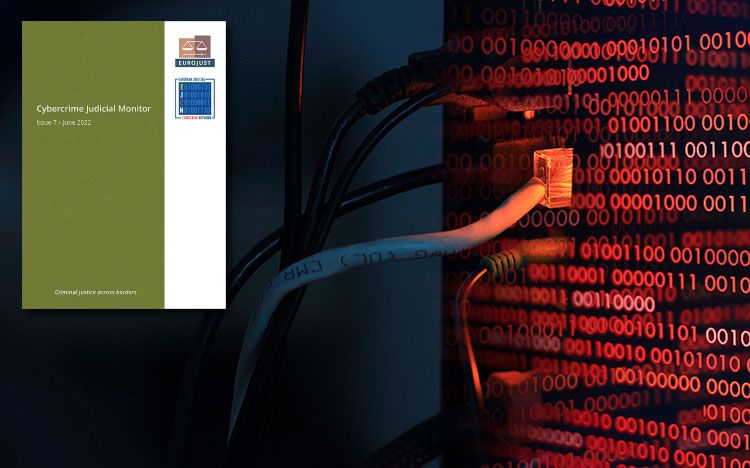The scale and impact of ransomware attacks have increased significantly over the past years, in part due to the COVID-19 pandemic. As such, the success of criminal investigations and prosecutions depends more than ever on close cross-border cooperation between public authorities, private companies and victims. Public-private cooperation is particularly valuable in such cases, as companies can preserve and provide the data and evidence investigators need to investigate crimes and identify criminals.
These are some of the main conclusions from the latest edition of the Cybercrime Judicial Monitor, featuring a special focus on ransomware investigations, published this month.
Cooperation between stakeholders in ransomware investigations is essential. This includes the reporting of ransomware attacks by victims, the preservation and possible analysis of digital evidence by private companies, and the investigation and prosecution by public authorities. The international dimension of investigations and the complexity of identifying criminals require early and close cross-border coordination between judicial and law enforcement authorities. Actions by each stakeholder group play a key role in the mitigation of damages, disruption of attacks and the identification and prosecution of perpetrators.

Joint Statement by President von der Leyen and President Biden |
The report, based on practitioners’ input, highlights the challenges encountered in ransomware investigations. These include:
- the loss of data and important e-evidence;
- the criminal use of encryption and anonymisation techniques preventing the identification of suspects;
- the complexity of investigations and the lack or delay of international coordination;
- the absence of a harmonised data-retention legal framework; and
- insufficient resources and expertise of law enforcement authorities.
Despite these obstacles, practitioners can learn from the many good practices showcased in the report. These include the swift notification of ransomware attacks to relevant authorities and the creation of technical reports by the victim or affected company. Continuous information exchange between the authorities and the victim/technical team has proved highly important. The provision of guidelines for public authorities on how to deal with ransomware attacks, as well as specialised training for police and judicial authorities, is also key.

Pegasus and data protection under debate at the UN and European Parliament |
The report underlines the successful use of joint investigation teams facilitated by Eurojust, which have led to the identification, arrest and prosecution of cybercriminals. The building of trust between public authorities and private companies by sharing information and regular communication is also essential. Although most countries do not have a specific legal framework for public-private cooperation, experience has shown that such frameworks have enabled ransomware investigations to succeed and that they are therefore much needed.
This seventh issue of the Monitor additionally covers legislative developments in the area of cybercrime, cyber-enabled crime and e-evidence, as well as court rulings in EU Member States and beyond, and data-retention developments from the past year.
The Cybercrime Judicial Monitor is published yearly on the basis of expert input from members of the European Judicial Cybercrime Network. Next year’s edition will include court rulings and legal analysis on the admissibility of e-evidence gathered from investigations into encrypted communication networks. All issues are available on the Eurojust website here.
Source: Press release – Eurojust







Leave a Reply